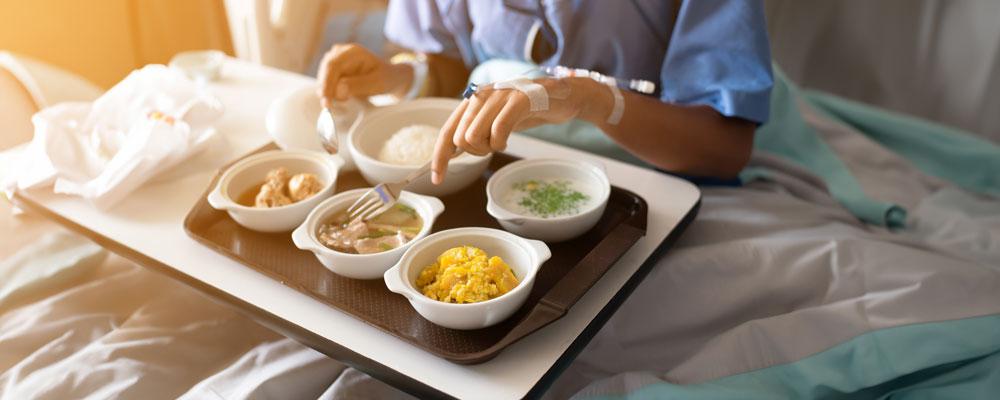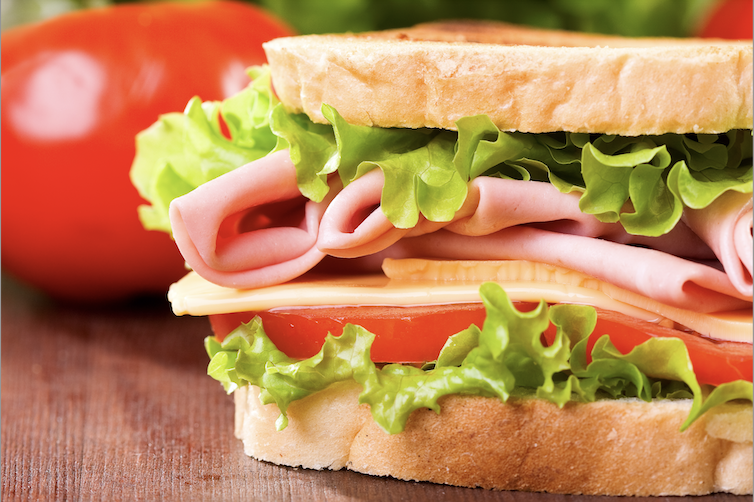NHS England published updated national standards for healthcare food and drink in November. HB investigates
The national standards for healthcare food and drink “describe the methods by which organisations must ensure the quality and sustainability of their food and drink provision for patients, staff and visitors, and how they should be applied and monitored, as well as recommending future improvement aspirations and actions.”
The foreword to the standards, by Simon Corben, director and head of profession at NHS Estates, NHS England begins: “Every healthcare organisation has a responsibility to provide the highest level of care possible for their patients, staff and visitors. This includes the quality, nutritional value and the sustainable aspects of the food and drink that is served, as well as the overall experience and environment in which it is eaten.
“It is important that all healthcare organisations see the intrinsic value in the view of ‘food as medicine’ and that it remains a standing item on the board agenda. Senior NHS leaders must be held accountable for the standard and quality of food served in their organisation, and patient and staff nutrition must be prioritised.”
Corben mentions variation across the country when it comes to food and drink for patients, staff and visitors. He states that not enough healthy options are consistently available, too much food is wasted and sustainability is not well embedded. He says that the Food Leadership team is aware that things need to improve and that the publication of these standards is part of that.
It is chief executives who are ultimately responsible for ensuring that patients, staff and visitors are able to access healthy, nutritious and sustainable food. The guidelines aim to provide chief executives and their teams with the tools and information to be able to do this.
NHS England set up the Healthcare Food standards and Strategy Group to follow on from the work started by the Hospital Food Panel in 2014. The group is made up of individuals, NHS organisations, suppliers and specialists. The group will continuously monitor the implementation and impact of the standards in order to support organisations to meet them.
The standards themselves build on previous hospital food standards, and consider the recommendations from the independent review of NHS hospital food. They also take into account NHS and government priorities and will be updated as necessary.
The standards are part of the NHS Long Term Plan and will also form part of the legally binding standards in the NHS Standard Contract.
There are eight standards in total and NHS organisations are required to meet them. Each organisation must have a designated board director responsible for food and must also report on compliance with the standards at board level.
The standards are as follows:
One
“Organisations must have a designated board director responsible for food (nutrition and safety) and report on compliance with the healthcare food and drink standards at board level as a standing agenda item.” This is intended to establish engagement, knowledge and safety, as each trust has the assurance that the organisation is complying with or working towards complying with the standards.
Two
“Organisations must have a food and drink strategy.” This means that every trust must develop its own “live strategy” for improving nutrition and hydration for patients, staff and visitors.
Three
“Organisations must consider the level of input from a named food service dietitian to ensure choices are appropriate.” Each trust needs to assess how many posts are needed for their hospital. The posts will be responsible for overseeing patient, staff and visitor food and drink. The standards provide a dietitian job description and person specification to help with this.
Four
“Organisations must nominate a food safety specialist.” Trusts need to recognise that they have legal obligations as food business operators and therefore ensure effective compliance with robust food safety procedures at every level. Trusts are responsible for ensuring that their supply chain is safe. The standards expect that trusts have a named Responsible Person, Competent Person, Authorised Person with the Chief Executive Officer being notified for assurance. The standards include a food safety specialist job description to help organisations meet this standard.
Five
“Organisations must invest in a high calibre workforce, improved staffing and recognise the complex knowledge and skills required by chefs and food service teams in the provision of safe food and drink services.” In recognising the complexity of delivering healthcare food and drink services, trusts need to ensure appropriate levels of staff at all levels and remunerate staff accordingly. This standard is intended to support food safety, nutritional safety and patient safety and provide a better working environment and therefore contribute to staff wellbeing, morale and retention.
Six
“Organisations must be able to demonstrate that they have an established training matrix and a learning and development programme for all staff involved in healthcare food and drink services.” This standard aims to provide assurance that staff are appropriately trained and are practising safely. This also includes non-catering staff such as nurses and porters who also handle food.
Seven
“Organisations must monitor, manage and actively reduce their food waste from production waste, plate waste and unserved meals.” Trusts need to understand where food waste comes from and why and take steps to reduce this. They must also recognise that reducing food waste will support funding for better food services for patients, staff and visitors. Figures on food waste will need to be reported and these will be published. Lots of support is available for this standard, including WRAP – food waste reduction roadmap toolkit and webinars on reducing food waste. This standard is intended to have a positive impact on staff behaviour and accountability and deliver cost reductions.
Eight
“NHS organisations must be able to demonstrate that they have suitable 24/7 food service provision, which is appropriate for their demographic.” This may include: retail solution; auto cafés; staff break areas; hydration stations; delivery solution and smart fridges – though there are more options. To ensure an appropriate solution for each site, conversations are needed with staff, procurement, facilities and clinical teams.
The standards are comprehensive and detailed and aim to improve food and drink standards across the NHS, in terms of nutrition and sustainability. The standards provide a large amount of support and advice to help trusts and individuals ensure these standards are met. The standards should go a long way to making sure the food and drink provided at NHS sites is healthy and sustainable and have a positive impact on the health and wellbeing of patients, staff and visitors as well as reducing costs.





